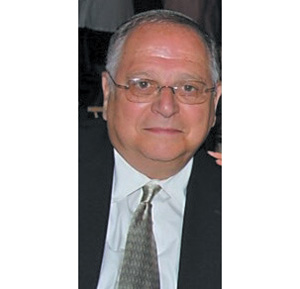
Years ago at a conference of Federation execs and Jewish communal workers, we played a version of Monopoly. Instead of real estate and utilities, we played for communal priorities. The challenge was how to decide which priorities merited the greatest investment, which were the most important. On top of that each player had only a fixed sum to spend, so prioritizing was crucial to “winning” for each person’s community. It was a powerful exercise, if only to demonstrate the difficulties faced by communal leaders to allocate funds over a wide range of needs.
Naturally there was a broad divergence among the players that reflected either their own biases or those of their community. There is a finite sum available to divide up among many contending interests. Israel was on everyone’s list. The only question was how much of the total budget to allocate. Then there was the debate of overseas vs. local needs. Among the most pressing issues were (and still are): aid to world Jewry, family services, the elderly, the JCCs, singles, the intermarried, Jewish education, teens, the unaffiliated, immigrant aid, job training and employment services, connecting with Israelis, kosher meals on wheels, Holocaust survivors, Birthright, special needs, Hillel, synagogue services and hospital chaplaincy. The Federation movement serves as the central address for providing these services by raising funds from the community.
Jewish philanthropy is very fickle. Many individuals choose by themselves where their money goes and they support specific causes and institutions. Others decide to donate to their community Federation which in turn makes the allocations. These decisions are based on various committee determinations by Federation leadership and supporters.
There is much Jewish wealth in Bergen County. There is also much Jewish philanthropy, but only a small portion is via our Northern New Jersey Federation. Regrettably the Orthodox representation at Federation is very small. Hence, influence in the decision-making and priority-setting processes is limited. All the communal needs listed above are important. That being said, several UJA Strategic Plans very clearly pointed to the priority of Jewish education in our community, yet these recommendations were ignored. The support that our day schools do receive could be greater. The few voices supporting more funding were drowned out by others with their own agendas.
Communal funding is a game and every game has its rules. It is also true that you have to be in it to win it. Nationally, we have the second highest number of day schools and day school students in our community, and the highest percentage of parents who are day school graduates. Yet we no longer have a central agency for Jewish education, and the consciousness-raising that once took place when there was an Allocations Committee, which actually visited day schools and came away totally impressed, also no longer exists.
I fully understand why members of the Orthodox community may not want to get involved with Federation. I also understand the philanthropists will not limit their giving to day schools, nor will they give/leave 5% of their estate to day schools, nor will we implement a 1% luxury tax in all our kosher restaurants to provide scholarship funds, nor is there a popular push for tuition tax credits.
However, if we want to shape the dialogue and influence decisions at Federation, we need a seat at the table. It may take a while, but showing up and getting involved in the entire panorama of Jewish needs will ultimately benefit day schools. Major gifts are not necessary. As Jews we have a responsibility beyond our parochial needs and they do count kippot! Federation is made up of volunteers. If you show up regularly and work on various committees, eventually you will be in a decision-making place. If there will be a sizable number of Orthodox volunteers, the priorities will shift. This formula also applies to the Schechter schools. If we invite Federation leadership into our schools, the priorities will shift.
We have a great product. If we can step out of our comfort zone and get involved in educating Federation about our schools, the priorities will shift and the funding will come.
Dr. Wallace Greene served as the director of Jewish Educational Services for the Jewish Federation of Northern New Jersey for over a decade.








